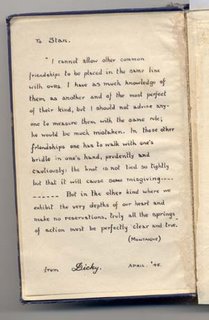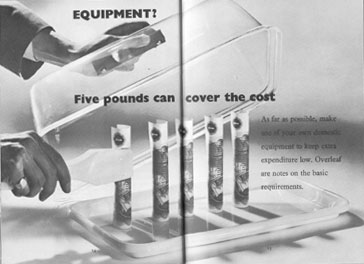Notes on the tweaked Times
It has taken me four-and-a-half days to get my thoughts together on this one, which in blog terms might as well be never, but it's worth looking at some of the ways The Times may have learned from the Guardian redesign. The wedge serifs on its new headline font, Times Modern, are coincidence: we have it from the designer that the inspiration is an old Times titlepiece, and you can see the family resemblance. (All these links, by the way, are from the excellent Newsdesigner and its commenters -- go there for an overview of what's been done, and links to the official Times explanations.) But consider these:
The top one is the Guardian, the bottom one The Times. Now, lots of papers are trying to give their readers more summary information on stories, and more 'entry points' for reading - but settling on a pair of double-line subheads in the first column, separated by hairline rules, and with extra space under the second line in each one, seems a bit too coincidental. It's not a theft or any kind of misdemeanour, but it does suggest that the Times redesigners, Research Studios, read the Guardian pretty closely.
The next case shows more divergence:
This is one of the little breakers the G now uses to lift text-heavy pages, next to one of the grey boxes the T is putting to similar purposes. The T's are bigger and more flexible and less inclined to appear in the middle of text, which suggests they're the result of shared pressures rather than direct inspiration.
The third case is actually trumpeted in the T's description of its new style -- greater differentiation for comment bits on news pages:
Again, G followed by T. Ragged-right text for comment, once a G eccentricity, seems to be becoming an industry standard: the T is going about it much more beefily, however, adding bold to the text and using a radically different headline type rather than just a slightly lighter one. The result looks like something out of the G from before its latest redesign -- except that it used to use serif headlines on comment and sans on news, whereas the T follows the opposite policy.
The G, then, continues to wield design influence beyond what its circulation performance would lead you to expect. (That may be because so many designer types read it, rather than because of simple merit.)
General T redesign verdict? I quite liked the tabloid as it was; this wouldn't put me off, and has the potential to draw me in to pages I'd previously have skipped. The feel is a tad more conventionally tabloid, though, because busier and, in places, more tightly spaced -- not sure they've fully compensated for the bigger X-height of the new headline font, especially in single-line headings.















